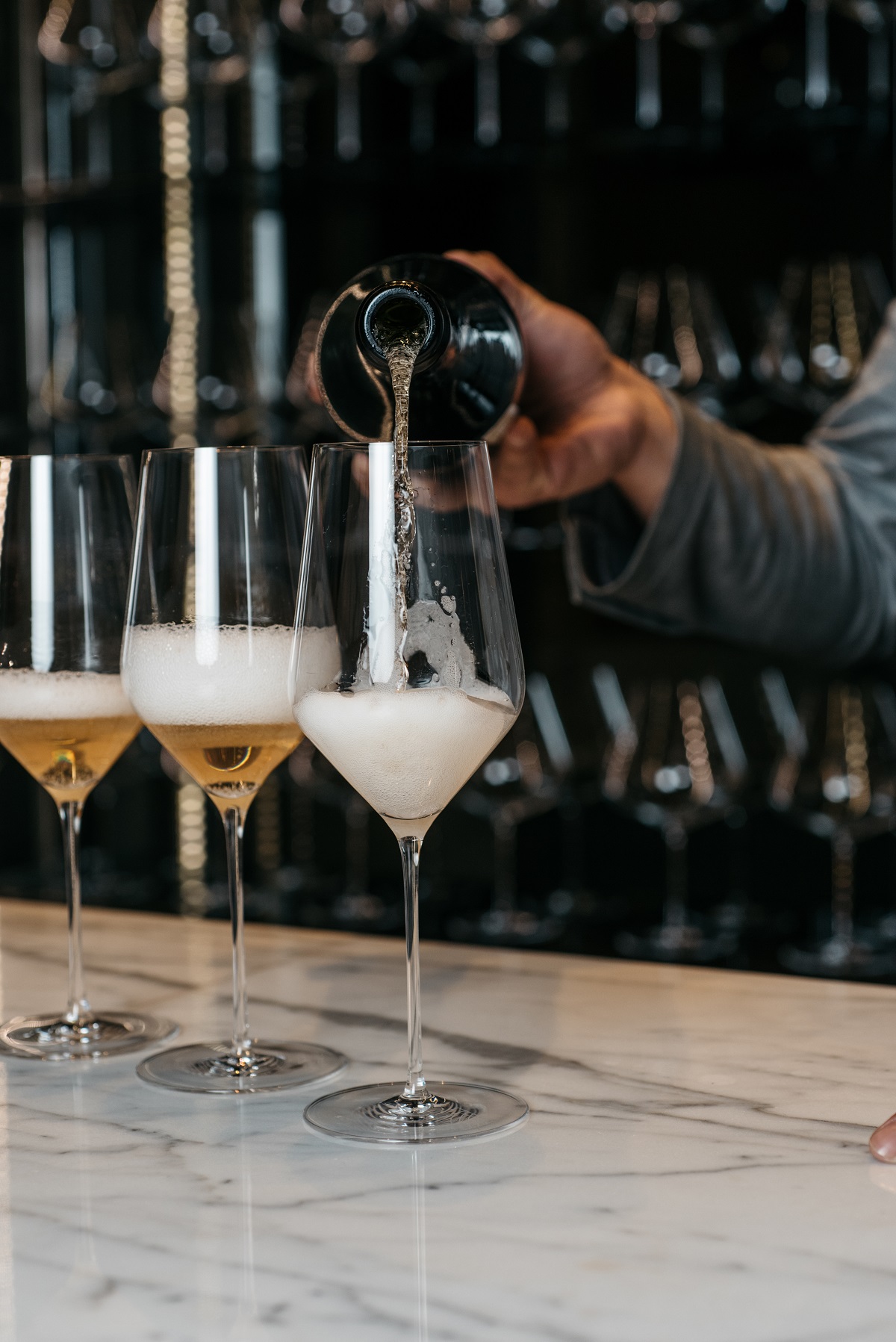Sommeliers are akin to the pushy salespeople who knock on your door. They disturb your peace and try to upsell you something you can’t afford. At least, that’s what many diners think. On the contrary, with a bit of an open mind and palate, sommeliers should be your best friends as they provide not just good conversation but also a worthwhile dining experience.
Big break in the Big Apple

A sommelier at Nomad for two years, Jhonel Faelnar has had a lot of experience when it comes to recommending wine to guests at one of New York’s most happening hotspots, often more favorable than not.
“There have definitely been times that had happened,” says 27-year-old Faelnar. “Maybe not necessarily brushed off, but more like the table doesn’t really care to talk about wine or beverage, and that’s okay. Not everybody wants to spend time talking about the specifics.” In the Mediterranean restaurant and bar owned by Daniel Humm and Will Guidara of famed Eleven Madison Park, Faelnar is just one of five who usually work the floor on any given night. “A lot of people want to drink,” he says.
And it’s no surprise, as the Big Apple is the fifth biggest wine drinking city in the world according to research released last year by France’s L’INStitut des hautes Etudes Economiques et Commerciales (INSEEC) business school. He himself realized this when he returned to the city in 2013 looking for an adventure while figuring out the course of his career. “I didn’t really grow up drinking wine. I just got into it when I lived in New York. It’s what people do to unwind and socialize. You taste wine and you become curious. Then one thing led to another.” Before long he found himself totally immersed in the beverage industry.
“Three years ago, my mom freaked out when I told her I wanted to be a sommelier because it’s not a thing that you’re supposed to do. And I think that’s the mindset that we need to change. That will only happen if the people who are passionate about it really rally for it.”
He bagged a job as barista-slash-bartender at Amali, a restaurant located on the Upper East Side; was rewarded a grant from the James Beard Foundation, which allowed him to take a 10-week intensive sommelier program at the International Culinary Center for free; and landed an internship at Wine & Spirits magazine where he was exposed to many varieties of wine from the same region all at once.
“That’s where I started tasting 40 champagnes a day. It fast-tracked me. I was tasting things I had no idea about.” Things fell into place fast and though it was overwhelming, Faelnar was more than able and ready to embrace the challenge and be a sponge to soak up all the opportunities life offered. “It was great and I wasn’t about to wait. It definitely wasn’t going to be easy but nothing held me back.” He was in fast-paced New York, after all.
Even before he graduated, Master Sommelier Roger Dagorn offered him a job running the wine program at American brasserie The Fourth. Not everyone gets such a lucky chance, but for Faelnar, who finished top of the class, the blessings just kept on coming. After a year and a half, he was introduced to the wine director at Nomad and soon he found himself working with some of the most passionate and most recognized sommeliers in the land.
Different approach
In Manila, where people are just starting to appreciate wine, sommeliers have yet to receive the same respect and recognition from the dining public. “Three years ago, my mom freaked out when I told her I wanted to be a sommelier because it’s not a thing that you’re supposed to do. And I think that’s the mindset that we need to change. That will only happen if the people who are passionate about it really rally for it.”
Sommeliers are thought to be snooty. Perhaps because it’s a very specific topic that they know—subject matter that not a lot of people study. But sommeliers bring something more to the table apart from just wine. It’s the conversation they provide and essentially, a good dining experience. “I feel like the sommelier brings a little bit of humor. A bit of whim,” he says.
“To be a sommelier, you have to be personable and sympathetic. You have to know how to read people. It’s a big part of the job. At the base level, you’re getting a friend, somebody who knows and loves food and wine. And he gives guests helpful nods and hints as to what drink they should have for their meal. He will try to explain wine in a way that doesn’t turn people off.”
People should not be afraid of sommeliers. They should, at least, hear what they have to say and not turn them down so quickly and easily. Besides, they’re there for you. “He just wants you to explore something you may not have tasted before. He wants to share his discovery with you.” Hear them out and you might be surprised, delighted and, most of all, thankful for what you might discover.
Originally published in F&B Report Vol. 14 No. 2